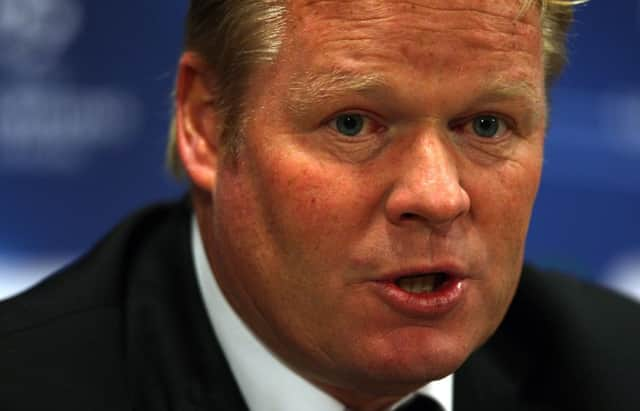Nine things you should know about FC Groningen


The Dons players have been vocal about their desire to make this Europa League campaign a long and memorable one. To fulfil those dreams they’ll have to give a strong first-leg showing when their Dutch opponents travel to Pittodrie on Thursday.
We will be providing a tactical preview on the day of the match, but in the meantime here is a list of nine interesting facts for you to get better acquainted with the Eredivisie side.
Advertisement
Hide AdAdvertisement
Hide Ad• Groningen is both a city and a province in the north eastern part of the country. For this reason, the fans nickname the team The Pride of the North, and with good reason. The city is the largest in the area with a population of around 200,000. Aberdeen, in comparison, has a marginally bigger populace with roughly 220,000 inhabitants.
• The club were only founded in 1971 but their ancestry goes back to the 1910s. The original incarnation, Unitas, became Groningen Football and Athletes Association (GVAV) who played in the Eerste Klasse Noord. They remained a small side even within the confines of their own city and only began prospering once professional football was introduced to the Netherlands. By 1964 they were the only professional team left in the city and were thus rebranded to FC Groningen seven years later.
• For 72 years, until 2006, the club played at Oosterpark Stadion. Finally the decision was taken to build a new stadium as the modest 12,000 capacity couldn’t contain Groningen’s growing fan base. In 2004 construction started on the new Euroborg stadium, which was completed two years later. Nicknamed the Green Hell or Green Cathedral, depending on your perspective, it holds just over 22,000. In the 2013/14 season the club had an average attendance of just under 20,000.
• Despite playing 35 of their 44 years in the top division they have never won a league title. The closest they came was in 1991 when they finished third, seven points (when it was two points for a win) behind champions PSV.
• Similar to their Scottish opponents, Groningen don’t have any neighbouring rivals due to their isolated geographical location compared to their top-flight opponents. In fact, in another similarity with Aberdeen, they see one of the country’s most successful clubs, Ajax, as their greatest rivals. Matches between the pair will routinely draw the highest attendances at the Euroborg.
• The current squad tend to share goals around, with three players hitting double figures last term and playmaker Michael de Leeuw finishing on nine. However, one of those three top scorers was teenage sensation Richairo Zivkovic who has since moved onto Ajax for £2 million. Former Fulham youngster Danny Hoesen arrived as part of the deal and was immediately awarded the No.9 shirt. The latter was once viewed as a hot prospect but has yet to find consistency in top flight football. He did, however, score against Barcelona in last season’s Champions League.
• The club didn’t have any representation at this World Cup, though one of their former sons led the Oranje to the final four. Arjen Robben came through the youth system at Groningen and spent two years in the team before being bought by PSV. Other than Robben, the most-celebrated Groningen alumni is former Barcelona player and current Southampton manager Ronald Koeman. The cultured defender and set-piece expert was on the side that first won entry into European football in 1983. It’s also worth noting that Celtic signed centre-back Virgil van Dijk from the club.
• Groningen were managed by former Rangers winger Peter Huistra in the years between 2010-2012. After an impressive fifth place finish, the team regressed in his second year, finishing 14th and prompting his sacking.
Advertisement
Hide AdAdvertisement
Hide Ad• The Groningen supporters have a healthy interest in Scottish football culture and are looking forward to the challenge of facing Aberdeen. They’d have been even more excited about the tie had it been Hibernian they were facing, since they’ve enjoyed a mutual bond with the Edinburgh club’s fanbase over the years, often making trips over to Scotland to watch Hibs games.